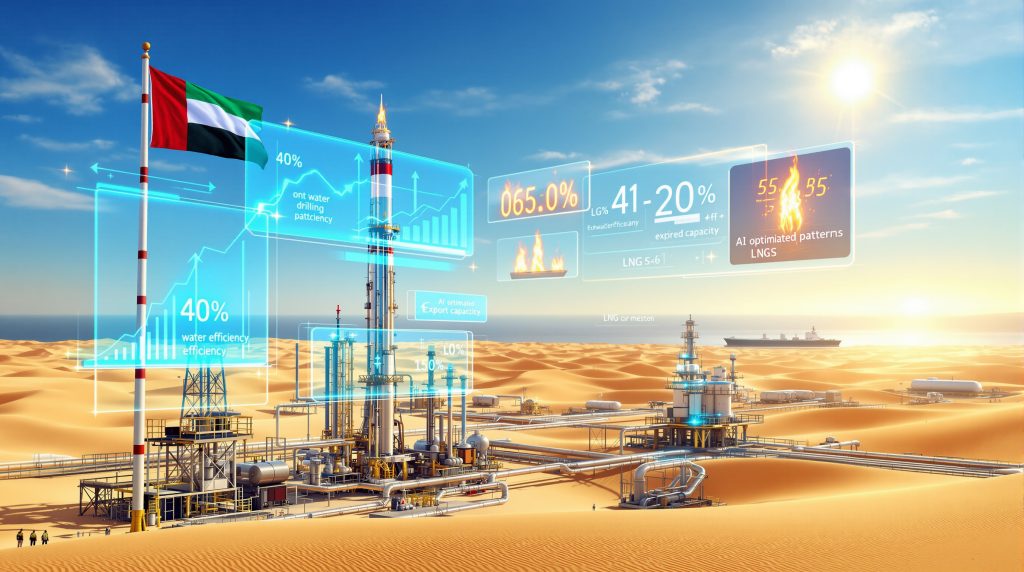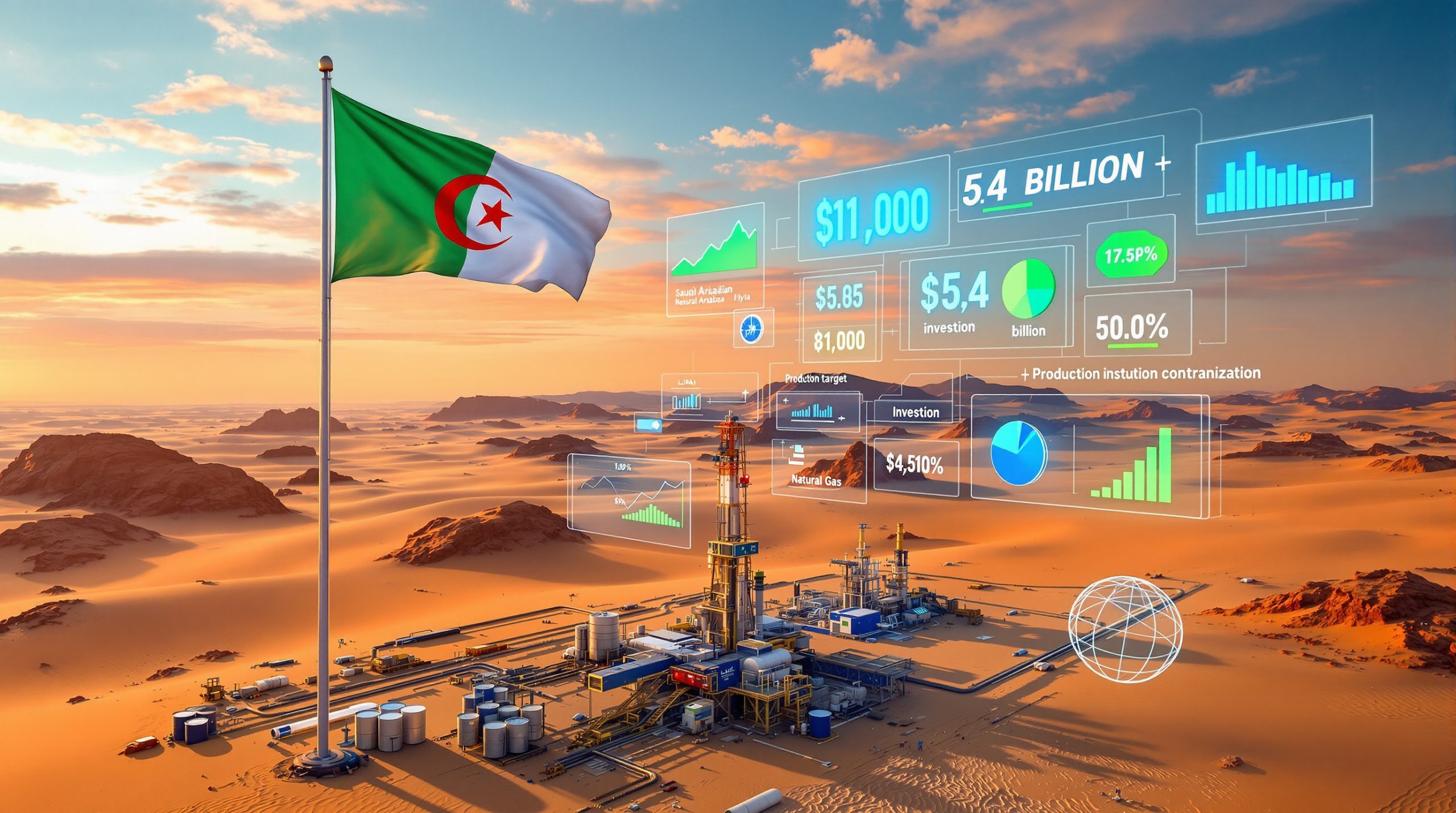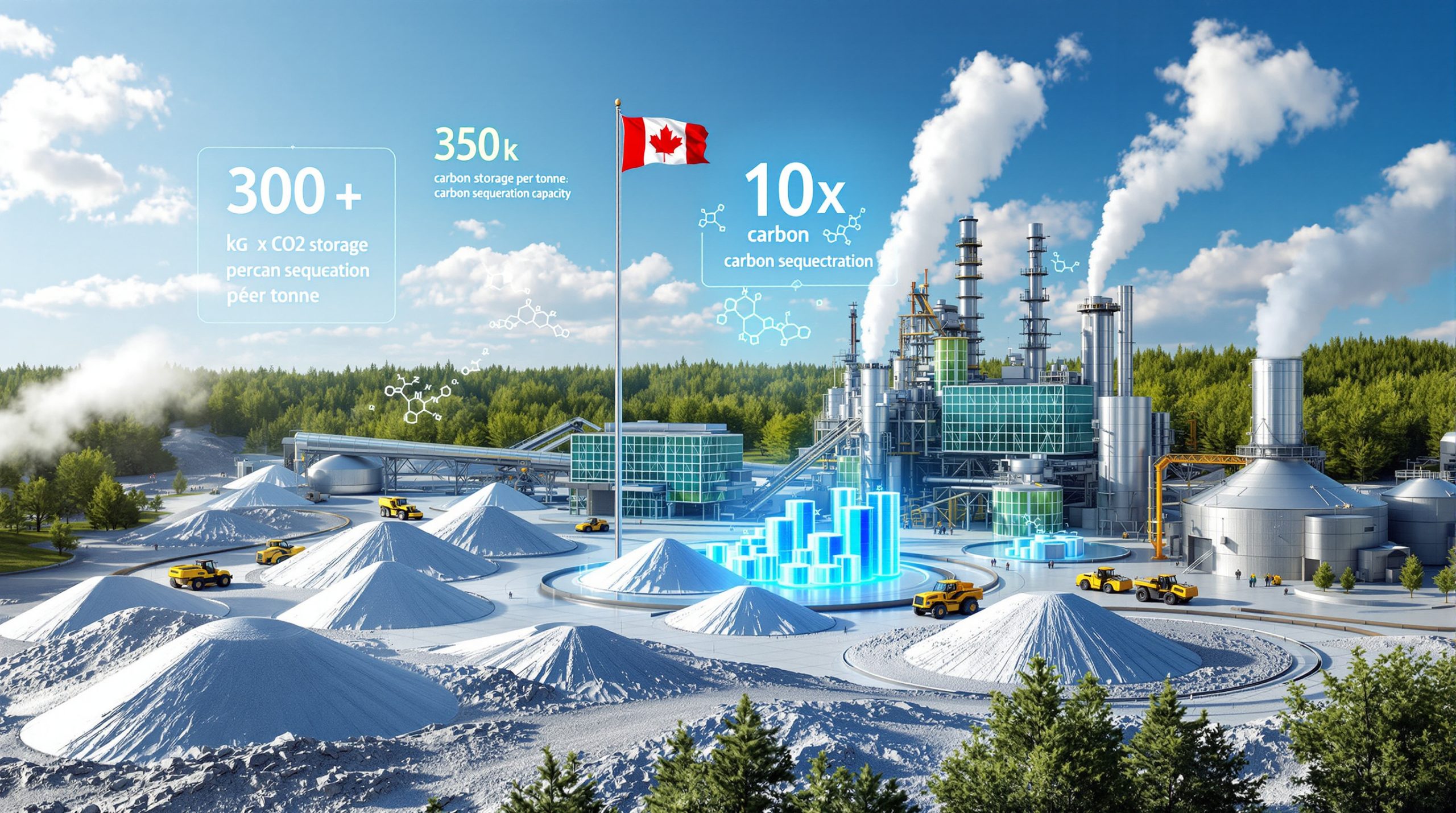What Makes ADNOC Shale Gas Development Revolutionary?
ADNOC's transformation into a major unconventional gas producer represents one of the most significant shifts in Middle Eastern energy strategy in decades. The ADNOC shale gas development has successfully adapted proven American hydraulic fracturing technologies to the unique geological conditions of the UAE's desert formations, achieving remarkable results that are reshaping regional energy dynamics.
The revolutionary nature of ADNOC's approach lies in its ability to overcome traditional barriers that have prevented successful shale development outside North America. Where other nations struggled with water scarcity, geological complexity, and environmental concerns, ADNOC has engineered innovative solutions specifically designed for arid climate operations.
According to industry executives speaking at the ADIPEC conference in November 2025, ADNOC's unconventional program has generated results where performance in some areas exceeds what has been achieved in established U.S. shale basins. This breakthrough demonstrates that with proper technological adaptation and strategic partnerships, unconventional resources can be successfully developed in diverse geological settings worldwide.
Performance Metrics Driving Success
The scale of ADNOC's unconventional program becomes evident through key operational achievements. The company's Ruwais liquefied natural gas project will deliver 9.6 million tons of annual export capacity, more than doubling ADNOC's production capabilities and positioning the UAE as a significant player in global LNG markets.
Furthermore, waste management innovations have emerged as a critical differentiator in ADNOC's operations. Traditional shale development requires massive freshwater volumes for hydraulic fracturing, but desert conditions demand more efficient approaches. ADNOC has implemented closed-loop recycling systems and brackish water utilization technologies that minimize freshwater consumption while maintaining operational effectiveness.
The integration of artificial intelligence and digital optimization tools has enhanced reservoir management and drilling efficiency. Moreover, data-driven operations enable precise well placement and completion design, maximizing recovery rates while reducing environmental impact through optimized drilling patterns that minimize surface disturbance.
Environmental stewardship remains paramount in ADNOC's unconventional development philosophy. The company has prioritised reducing operational carbon footprint through advanced recycling technologies and precision drilling techniques that exceed traditional industry standards for desert operations.
Why Is the UAE Pursuing Unconventional Gas Development Now?
The timing of ADNOC's unconventional gas expansion reflects multiple converging factors that make this strategic pivot both economically compelling and nationally essential. The UAE's domestic energy landscape is experiencing unprecedented transformation driven by industrial diversification and technological infrastructure demands.
Domestic Demand Surge
The UAE and other Middle Eastern states are experiencing rapidly growing gas demand, particularly from power-hungry data centre developments. The regional data centre boom requires reliable, large-scale power generation that natural gas can efficiently provide. This emerging sector represents a high-value demand source that justifies significant infrastructure investment in unconventional resources.
Industrial expansion beyond traditional petrochemicals is creating additional gas consumption requirements. Manufacturing facilities, aluminium smelting operations, and emerging hydrogen production initiatives all require substantial natural gas feedstock, driving domestic consumption projections significantly higher than historical patterns.
Power generation modernisation efforts across the UAE prioritise natural gas as a cleaner alternative to liquid fuels for electricity production. This transition supports environmental objectives while providing grid stability and economic efficiency compared to renewable energy storage challenges.
Energy Security Imperatives
The UAE aims to achieve complete gas self-sufficiency by the end of this decade, eliminating dependence on regional imports and creating strategic energy independence. This timeline establishes urgency for unconventional development programmes that can deliver substantial production volumes within the next five years.
Geopolitical considerations make domestic gas production particularly valuable for the UAE. Regional supply disruptions, pipeline infrastructure vulnerabilities, and changing diplomatic relationships with neighbouring gas producers create strategic risks that domestic unconventional resources can mitigate effectively.
Export Market Opportunities
Global LNG markets present substantial revenue opportunities for UAE gas exports once domestic self-sufficiency is achieved. Asian markets show strong long-term demand growth projections, particularly in countries transitioning from coal-fired power generation to cleaner natural gas alternatives.
ADNOC has already demonstrated sophisticated LNG trading capabilities, currently trading three times more LNG than the company produces domestically. This trading expertise positions the UAE to capture market opportunities and optimise export revenues once domestic production capacity exceeds consumption requirements.
The company's international investment strategy includes participation in global unconventional projects, such as potential involvement in Argentina's Vaca Muerta shale development. These diversification efforts create supply chain resilience and provide operational experience in varied geological settings.
How Does ADNOC's Approach Differ from Traditional Shale Development?
ADNOC has developed a distinctly adapted methodology that addresses the specific environmental and geological challenges of unconventional development in desert conditions. This approach represents significant innovation beyond simply replicating North American shale techniques.
Desert-Optimised Fracturing Systems
Water scarcity in arid climates necessitates fundamentally different hydraulic fracturing approaches compared to water-abundant regions like Pennsylvania or North Dakota. ADNOC has engineered closed-loop water management systems that recycle produced water through advanced filtration technologies, dramatically reducing freshwater requirements per well.
Brackish groundwater utilisation provides an alternative water source that doesn't compete with agricultural or municipal freshwater supplies. This approach requires specialised chemical systems and completion designs that can effectively fracture formations using higher-salinity water without compromising well productivity.
Temperature extremes in desert operations demand equipment modifications and operational procedures adapted for high-heat environments. Hydraulic fracturing equipment, completion tools, and surface facilities must operate reliably in conditions that regularly exceed temperatures experienced in traditional shale basins.
Advanced Drilling Technologies
Horizontal drilling capabilities in UAE formations require specialised geological understanding and adapted completion techniques. In addition, AI in drilling often presents different rock properties, stress orientations, and reservoir characteristics compared to established North American shale plays.
Precision drilling techniques minimise surface footprint while maximising reservoir contact. Advanced directional drilling capabilities enable operators to access large reservoir areas from consolidated surface locations, reducing infrastructure requirements and environmental impact.
Digital integration throughout drilling operations provides real-time formation evaluation and completion optimisation. Automated systems adjust drilling parameters based on geological feedback, improving well placement accuracy and completion effectiveness.
Environmental Management Innovations
Ecosystem protection measures specifically designed for desert environments address unique wildlife corridors, vegetation preservation, and soil stability concerns. Traditional temperate climate environmental protocols require modification for arid ecosystem protection.
Air quality management in desert operations focuses on dust control, emissions monitoring, and particulate reduction strategies that account for different atmospheric conditions and population centres compared to rural North American shale regions.
Restoration protocols for temporary access roads and well sites must address desert revegetation challenges and long-term land use compatibility with traditional Bedouin territories and cultural heritage sites.
Which International Partners Drive ADNOC Shale Gas Development Success?
ADNOC's unconventional programme leverages strategic partnerships with leading global operators to accelerate technology transfer and operational expertise development. These collaborations combine international technical capabilities with local geological knowledge and market access.
EOG Resources Collaboration
The partnership with Houston-based EOG Resources represents a cornerstone of ADNOC's unconventional strategy. EOG brings extensive horizontal drilling expertise and completion optimisation techniques developed through decades of North American shale operations.
Technology transfer from EOG includes advanced completion design methodologies, reservoir characterisation techniques, and production optimisation strategies. This knowledge transfer accelerates ADNOC's learning curve and reduces development risks associated with unconventional operations.
Operational partnerships enable ADNOC to benefit from EOG's experience in over-pressured formations and complex geological settings. EOG's track record in challenging basins provides valuable insights for UAE reservoir development approaches.
TotalEnergies Strategic Alliance
France's TotalEnergies contributes European technological innovations and environmental management expertise to ADNOC's unconventional programme. TotalEnergies' experience in diverse international markets provides valuable perspective on regulatory compliance and community engagement.
Joint venture structures with TotalEnergies enable risk sharing and capital optimisation for large-scale development projects. These partnerships provide access to international financing sources and technical capabilities that accelerate project timelines.
Environmental technology integration through TotalEnergies partnerships emphasises sustainability protocols and carbon footprint reduction strategies. European environmental standards influence operational design and long-term sustainability planning.
Petronas Technical Integration
Malaysia's Petroliam Nasional (Petronas) brings valuable experience in tropical and challenging climate operations to ADNOC's desert development efforts. Petronas' expertise in unconventional resources complements North American and European partnerships.
Regional market knowledge from Petronas provides insights into Asian LNG demand patterns and export market opportunities. This intelligence informs ADNOC's long-term production planning and export strategy development.
Technology integration across multiple international partnerships creates operational flexibility and reduces dependence on single-source technical solutions. Diverse partnership structures enable ADNOC to optimise approaches for different reservoir types and operational challenges.
What Are the Key Production Milestones and Targets?
ADNOC shale gas development has established ambitious production targets that align with the UAE's broader energy independence timeline while positioning for substantial export market participation. These milestones reflect both domestic supply requirements and international market opportunities.
Near-Term Development Priorities
The Ruwais LNG project under construction represents ADNOC's primary export infrastructure investment, delivering 9.6 million tons of annual liquefaction capacity. This facility will more than double ADNOC's production capabilities and establish the UAE as a significant LNG exporter.
Domestic gas self-sufficiency by the end of this decade remains the fundamental target driving unconventional development urgency. Achieving this goal by 2029-2030 requires rapid scaling of unconventional production to meet growing domestic consumption while building export capacity.
First gas delivery from major unconventional fields represents critical validation of technical approaches and commercial viability. Early production results exceeding U.S. shale benchmarks in some areas provide confidence for expanded development programmes.
Production Capacity Scaling
| Development Phase | Timeline | Primary Objective | Production Focus |
|---|---|---|---|
| Initial Production | 2025-2026 | Technology validation | Pilot well programmes |
| Capacity Building | 2027-2028 | Domestic supply growth | Commercial development |
| Export Optimisation | 2029-2030 | International markets | LNG export capacity |
Unconventional production growth must coordinate with conventional field development to optimise overall portfolio economics. Integration between conventional offshore production and onshore unconventional development creates operational synergies and infrastructure efficiency.
Long-Term Strategic Positioning
Export capacity development beyond domestic requirements positions ADNOC as a swing supplier in global LNG markets. Strategic reserves development provides supply security whilst enabling participation in spot market opportunities.
LNG trading expansion leverages ADNOC's current capability of trading three times more LNG than domestic production. This intermediary position creates revenue opportunities and market intelligence that support long-term strategic positioning.
International project participation, including potential involvement in Argentina's unconventional development, provides operational diversification and supply chain resilience. Global portfolio development reduces dependence on single-country production assets.
How Does ADNOC's Shale Program Impact Global Energy Markets?
The emergence of the UAE as a major unconventional gas producer creates significant ripple effects throughout global energy markets, particularly in LNG trading patterns and regional supply competition.
LNG Market Transformation
ADNOC's LNG trading strategy has already established the company as a major intermediary, handling three times more LNG volume than its domestic production capacity. This trading approach positions the UAE as a liquidity provider and market maker rather than simply a producer selling to end consumers.
The addition of 9.6 million tons of annual export capacity from the Ruwais facility creates new supply flexibility in global markets. This additional capacity provides importing nations with supply source diversification options, reducing dependence on traditional dominant exporters.
Asian market access through ADNOC's growing export capabilities addresses long-term demand growth projections in the region. Countries transitioning from coal to natural gas for power generation require reliable, competitively priced LNG supplies that ADNOC shale gas development can provide.
Regional Competition Dynamics
ADNOC's unconventional success demonstrates that shale technology can be successfully adapted outside North America, encouraging other Middle Eastern producers to accelerate their own unconventional programmes. This regional competition dynamic could significantly increase global unconventional production over the next decade.
Traditional pipeline gas suppliers face increased competition as LNG becomes more cost-competitive and supply sources diversify. ADNOC's success reduces the market power of established pipeline monopolies and creates more competitive pricing environments.
Export revenue competition among Gulf producers intensifies as multiple countries develop significant LNG export capabilities simultaneously. This competition could benefit importing nations through improved pricing and contract terms.
Supply Chain Diversification Benefits
Energy security improvements for importing nations result from additional supply source availability. ADNOC's unconventional production adds geographic and geological diversification to global gas supplies, reducing systemic supply risks.
Pricing mechanism evolution reflects the increasing importance of spot markets and short-term contracts compared to traditional long-term oil-linked pricing. ADNOC's trading-focused approach contributes to more flexible and responsive LNG pricing structures.
Infrastructure investment stimulation occurs as new production sources require specialised transportation, storage, and regasification facilities. ADNOC's export growth drives complementary infrastructure development across global LNG supply chains.
What Environmental Innovations Distinguish ADNOC's Operations?
ADNOC has implemented comprehensive environmental management systems that address the unique challenges of unconventional development in arid climates whilst establishing new industry standards for desert operations.
Water Conservation Leadership
Advanced water recycling technologies enable ADNOC to significantly reduce freshwater consumption per well compared to traditional shale operations. Closed-loop systems capture, treat, and reuse produced water for subsequent fracturing operations, minimising external water requirements.
Brackish groundwater utilisation provides an alternative water source that doesn't compete with agricultural or municipal supplies. Specialised completion fluids and chemical systems enable effective fracturing using higher-salinity water whilst maintaining production performance.
Produced water treatment innovations convert waste streams into reusable resources through advanced filtration and purification technologies. These systems transform environmental liabilities into operational assets whilst reducing disposal requirements.
Carbon Footprint Minimisation
Methane emissions reduction through comprehensive leak detection and gas capture systems exceeds industry standards for unconventional operations. Advanced monitoring technologies identify and address emission sources before they become significant environmental concerns.
Flare reduction programmes capture previously wasted gas for productive use or sale rather than burning excess production. These systems improve operational economics whilst reducing carbon emissions and air quality impacts.
Energy efficiency optimisation throughout operations reduces overall carbon intensity per unit of gas produced. Digital systems monitor and optimise equipment performance to minimise energy consumption and emissions.
Ecosystem Protection Measures
Desert ecosystem preservation requires specialised approaches that differ significantly from temperate climate environmental management. ADNOC has developed protocols specifically designed for arid environment wildlife protection and vegetation preservation.
Minimal surface disturbance through horizontal drilling techniques reduces the physical footprint of operations whilst accessing extensive reservoir areas. Consolidated surface facilities minimise habitat fragmentation and infrastructure impact.
Cultural heritage protection addresses the unique requirements of operating in traditional Bedouin territories. Consultation processes and operational modifications ensure compatibility with cultural practices and historical site preservation.
What Challenges Must ADNOC Overcome for Long-Term Success?
Despite early achievements, ADNOC faces several significant challenges that could impact the scalability and long-term viability of its unconventional gas programme.
Geological Complexity Management
Over-pressured reservoir conditions in UAE formations require specialised completion techniques and safety protocols that differ from typical North American shale operations. These high-pressure environments demand enhanced well design and operational procedures to ensure safe and effective development.
Variable rock properties across different formations create completion optimisation challenges that require extensive geological analysis and adaptive operational approaches. Each reservoir area may require customised fracturing designs and production optimisation strategies.
Reservoir connectivity and drainage patterns in desert formations may differ significantly from established shale play characteristics. Long-term production performance requires careful monitoring and potential completion technique modifications as operational experience accumulates.
Infrastructure Development Requirements
Pipeline network expansion to connect remote unconventional development areas with existing processing facilities and export terminals requires substantial capital investment and complex logistics coordination in desert environments.
Processing facility modifications may be necessary to handle unconventional gas compositions that differ from traditional UAE production streams. Equipment upgrades and operational procedure changes could require significant technical investments.
Transportation logistics for specialised unconventional equipment and materials in desert locations present unique challenges compared to established shale regions with existing infrastructure networks.
Regulatory and Social Considerations
Environmental permitting for expanded unconventional development requires comprehensive impact assessments and stakeholder engagement processes that address local community concerns and ecological protection requirements.
Water rights and usage regulations may impose constraints on unconventional operations, particularly if conflicts arise with agricultural or municipal water requirements during extended drought periods.
International compliance with evolving methane emissions standards and carbon reporting requirements could necessitate additional environmental control technologies and monitoring systems.
Community relations management in traditional territories requires ongoing dialogue and benefit-sharing arrangements that address local economic development and cultural preservation concerns.
How Will ADNOC's Success Influence Regional Energy Strategies?
The demonstrated viability of unconventional gas development in the UAE establishes a template for other Middle Eastern nations to evaluate and potentially develop their own shale resources.
Regional Replication Opportunities
Saudi Arabia's vast unconventional resources could be developed using similar technological approaches and partnership strategies that ADNOC has successfully implemented. The Kingdom's domestic gas demand growth and export ambitions create strong incentives for accelerated unconventional development.
Kuwait's exploration of unconventional opportunities may benefit from ADNOC's operational experience and technological innovations adapted for desert environments. Regional knowledge sharing could accelerate development timelines and reduce technical risks.
Oman's tight gas development initiatives could incorporate lessons learned from ADNOC's approach to water management, environmental stewardship, and community engagement in desert unconventional operations.
Investment Flow Implications
International oil companies are increasingly focusing investment resources on Middle Eastern unconventional opportunities following ADNOC's demonstrated success. This investment migration could accelerate regional unconventional development whilst potentially reducing North American shale investment.
Service company expansion into Middle Eastern markets creates competitive dynamics and technology transfer opportunities that benefit regional unconventional development programmes. However, the emergence of new technologies, as highlighted at the mining innovation expo, creates opportunities for specialised desert operating capabilities to become valuable competitive differentiators.
Technology provider partnerships with regional operators drive innovation in desert-specific completion techniques, water management systems, and environmental control technologies that could have global applications.
Geopolitical Energy Implications
Reduced regional gas import dependencies strengthen energy security and provide greater policy flexibility for Gulf Cooperation Council member nations. Domestic unconventional production reduces vulnerability to supply disruptions and pricing manipulation.
Enhanced energy security enables more assertive regional foreign policies and reduced dependence on traditional energy suppliers for critical domestic energy requirements. Consequently, this shift mirrors the drilling technology shift seen in other global markets.
Competitive pressure on established pipeline gas suppliers creates opportunities for importing nations to negotiate improved contract terms and pricing structures as alternative supply sources become available.
What Does the Future Hold for ADNOC's Unconventional Program?
ADNOC's long-term vision extends beyond domestic gas self-sufficiency toward establishing the UAE as a major player in global unconventional resource development and LNG trading.
International Expansion Strategy
Recent announcements regarding potential participation in ADNOC's unconventional gas expansion in Argentina's Vaca Muerta shale development demonstrate ADNOC's commitment to building global unconventional expertise through international partnerships and investments.
Technology leadership development through continued innovation in desert unconventional operations could position ADNOC as a technology exporter to other arid climate regions with unconventional resources.
Global supply chain integration through international investments creates operational diversification and strategic positioning in multiple unconventional basins worldwide.
Technology Innovation Leadership
Advanced artificial intelligence applications for reservoir management and production optimisation represent frontier technologies that could provide competitive advantages in unconventional development efficiency and environmental performance.
Next-generation completion techniques specifically designed for desert environments may create intellectual property and technological expertise that ADNOC can licence or apply in other similar geological settings.
Environmental technology leadership in arid climate operations establishes ADNOC as a reference operator for sustainable unconventional development in water-scarce regions.
Market Position Evolution
LNG trading capacity expansion beyond the current three-to-one ratio of trading volume to production could establish ADNOC as one of the world's largest LNG intermediaries, creating substantial revenue opportunities independent of production growth.
Strategic storage facility development positions ADNOC to participate in seasonal price arbitrage and provide supply security services to importing nations concerned about supply disruption risks.
Long-term supply agreement negotiations with Asian buyers provide revenue certainty whilst establishing ADNOC shale gas development as a reliable supplier in the world's fastest-growing LNG market region.
Disclaimer: This analysis is based on publicly available information and industry reports. Future production targets, investment returns, and market projections involve inherent uncertainties and should not be considered investment advice. Energy market conditions, regulatory changes, and technological developments may impact actual outcomes differently than projected.
Considering Investment Opportunities in Energy Sector Developments?
Discovery Alert provides instant notifications on significant ASX mineral discoveries, powered by its proprietary Discovery IQ model, giving subscribers rapid insights into actionable trading and investment opportunities across energy-related commodities. Explore why major mineral discoveries can lead to substantial market returns by visiting Discovery Alert's dedicated discoveries page, and begin your 30-day free trial today to position yourself ahead of the market.



